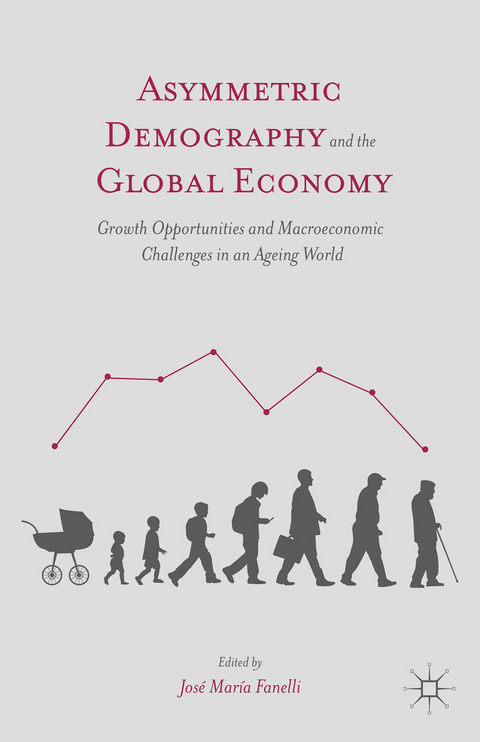
Asymmetric Demography and the Global Economy
Palgrave Macmillan (Verlag)
978-1-137-48645-5 (ISBN)
Asymmetric Demography and the Global Economy contributes to our understanding of why this demographic transition matters to the domestic macroeconomics and global capital movements affect the asset accumulation, growth potential, current account, and the economy's international investment position. This collaborative collection approaches these questions from the perspective of "systemically important" emerging countries i.e., members of the G20 but considers both the national and the global sides of the problem.
Ramiro Albrieu, University of Buenos Aires, Argentina Melvin Ayogu, Mapungubwe Institute for Strategic Reflection, South Africa Ricardo D. Brito, INSPER Institute of Education and Research, Brazil Richard N. Cooper, Harvard University, USA Pranab Kumar Das, Centre for Studies in Social Sciences, Calcutta, India Cai Fang, Chinese Academy of Social Sciences Saibal Kar, Centre for Studies in Social Sciences, Calcutta, India José Antonio Ocampo, Columbia University, USA Olumide Taiwo, Centre for the Study of the Economies of Africa, Nigeria Carlos Viana de Varvalho, Pontifical Catholic University of Rio de Janeiro, Brazil Harry X. Wu, Hitotsubashi University, Japan Du Yang, Chinese Academy of Social Sciences
PART I: THE DEMOGRAPHIC TRANSITION AND THE MACROECONOMY: SETTING THE STAGE 1. Demographic Asymmetries and the Global Macroeconomy; José María Fanelli and Ramiro Albrieu 2. Demography and the Macroeconomy: A Methodological Framework; José Maria Fanelli PART II: DEMOGRAPHIC ASYMMETRIES AND THE GLOBAL SYSTEM 3. On the Macroeconomic and Financial Implications of the Demographic Transition; José María Fanelli and Ramiro Albrieu 4. Demography, Economic Growth, and Capital Flows; Richard N. Cooper 5. Reforming the Global Monetary Non-system; José Antonio Ocampo PART III: ON CHALLENGES AND OPPORTUNITIES FOR EMERGING ECONOMIES 6. Macroeconomic Effects of the Demographic Transition in Brazil; Ricardo Brito and Carlos Carvalho 7. China's Premature Demographic Transition in Government-Engineered Growth; Cai Fang, Yang Du and Harry X. Wu 8. A Study of Demographic and Financial Changes in India; Pranab kumar Das and Saibal Kar 9. Demographic Transition, Growth, and Wealth in South Africa; Melvin D. Ayogu and Olumide Taiwo
| Erscheint lt. Verlag | 5.3.2015 |
|---|---|
| Zusatzinfo | XV, 293 p. |
| Verlagsort | Basingstoke |
| Sprache | englisch |
| Maße | 152 x 229 mm |
| Themenwelt | Sozialwissenschaften ► Politik / Verwaltung ► Vergleichende Politikwissenschaften |
| Sozialwissenschaften ► Soziologie ► Empirische Sozialforschung | |
| Sozialwissenschaften ► Soziologie ► Spezielle Soziologien | |
| Wirtschaft ► Volkswirtschaftslehre ► Makroökonomie | |
| ISBN-10 | 1-137-48645-7 / 1137486457 |
| ISBN-13 | 978-1-137-48645-5 / 9781137486455 |
| Zustand | Neuware |
| Haben Sie eine Frage zum Produkt? |
aus dem Bereich


